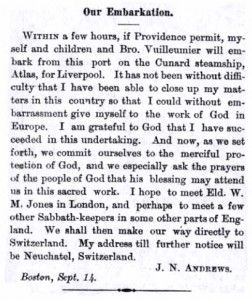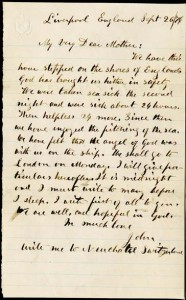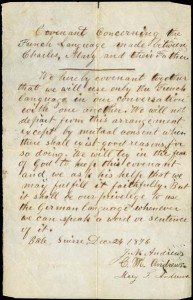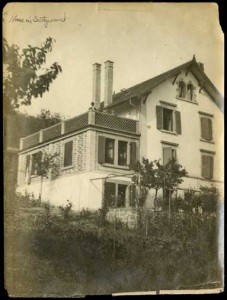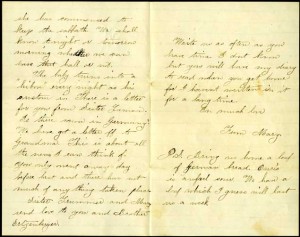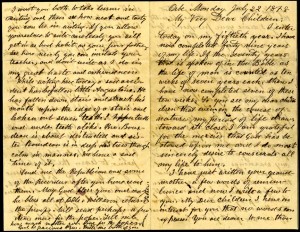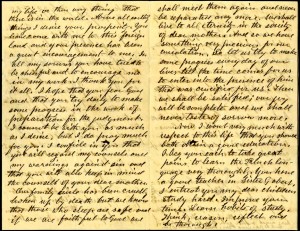This is the notice which appeared in the September 15, 1874, issue of the Review and Herald announcing to the Church that John Andrews was going as a missionary to Europe.
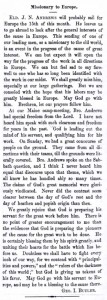
This is the notice which appeared in the September 15, 1874, issue of the Review and Herald announcing to the Church that John Andrews was going as a missionary to Europe.
John Andrews wrote a short letter to the Review and Herald and thus to the Church about his mission to Europe. This appeared in the September 29, 1874, issue.
John Andrews wrote a short letter to the Review and Herald and thus to the Church about his mission to Europe. This appeared in the September 29, 1874, issue.Letter from John N. Andrews to Sarah Andrews, Thursday, September 26, 1874. It was written from Liverpool, England, as one of the first things John did upon reaching Europe. His first line says,
“We have this hour stepped on the shores of England. God has brought us hither in safety.”
This letter is perhaps indicative of his character. With all of the other things that are surely going on he takes time to write to his widowed mother as soon as he reaches Europe.
Letter from John N. Andrews to Sarah Andrews, Thursday, September 26, 1874.This is a covenant or agreement made between John and his two children on Christmas Eve, 1876. In it they agree to only speak the French language; if they can speak German that would also be fine.
This is the house the Andrews’ family lived in at Neuchatel, Switzerland.Letter from Mary Andrews to her father, John, March 8, 1876. It is a letter conveying some news from home as John is traveling in Germany. Mary asks her father to bring some German bread home with him.
Letter from John N. Andrews just after his 50th birthday to his children, June 15, 1878. In this letter John thinks about where he is in life and then offers a good deal of fatherly advice to his two children.
We hope you will take some time and try to read at least portions of the letter. It will move your soul as John talks about his wife Angeline.
“Our family circle has been cruelly broken up by death but we know that those who sleep are safe and if we are faithful to God we shall meet them again and never be separated any more. We shall live to all eternity in the society of dear mother.”
John goes on to encourage his children to get a good education. He also pleads with them to
“try daily to make some progress in the work of preparation for the judgment.”
Letter from John N. Andrews just after his 50th birthday to his children, June 15, 1878.Letter from John N. Andrews to his brother-in-law and Review and Herald editor, Uriah Smith, on April 24, 1883. In this letter Andrews acknowledges that his life on earth is drawing to a close–he is dead 6 months later. In modesty he asks Uriah to limit the amount of space taken by an obituary. He says,
“I make this request because I fear that your kind regard for me will constrain you to say what I do not merit and what ought not to be said. My best acts have had some trace of selfishness in them or have been lacking in love toward God and man. I beseech you therefore by all the affection which you bear me that you will regard this my earnest petition.”
He goes on to ask Smith to confidentially convey this desire to the editor of the other major church paper, The Signs of the Times. This explains why, upon his death almost exactly 6 months later, the obituary for Andrews in each paper was noticeably subdued from what one would normally expect.
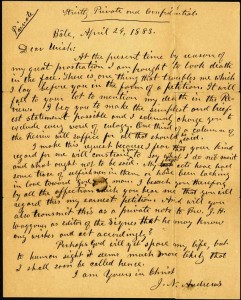
Letter from John N. Andrews to his brother-in-law and Review and Herald editor, Uriah Smith, on April 24, 1883.
Notice the notations on the top of the letter:
Private
Strictly Private and Confidential
On the back he wrote “Private” again.

